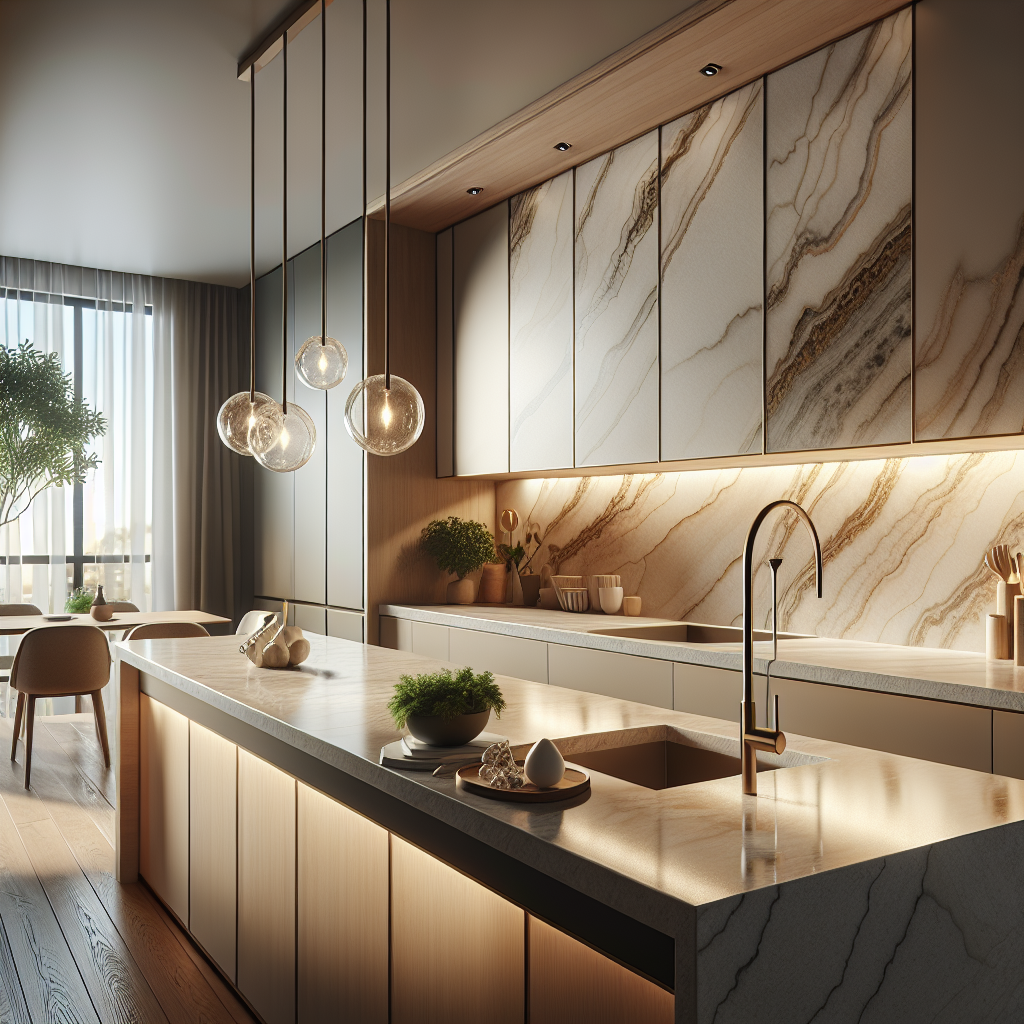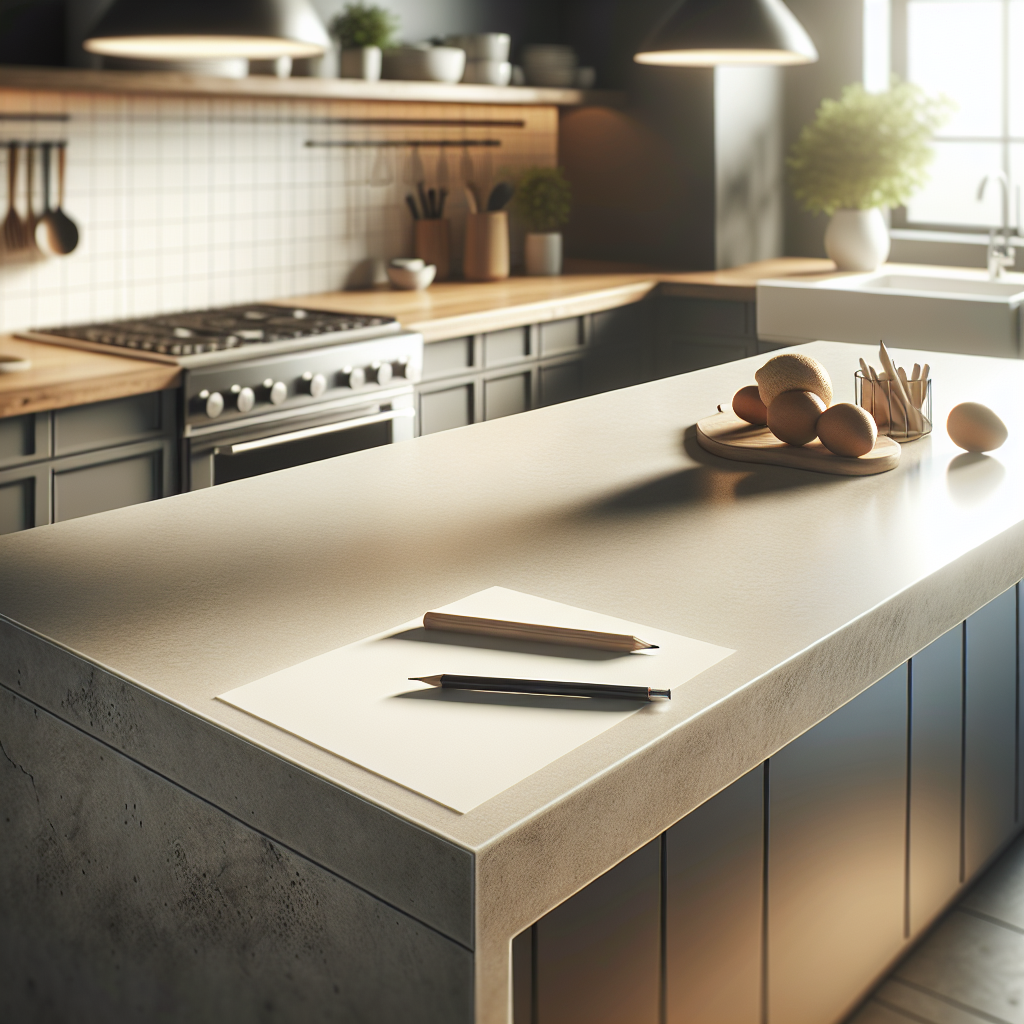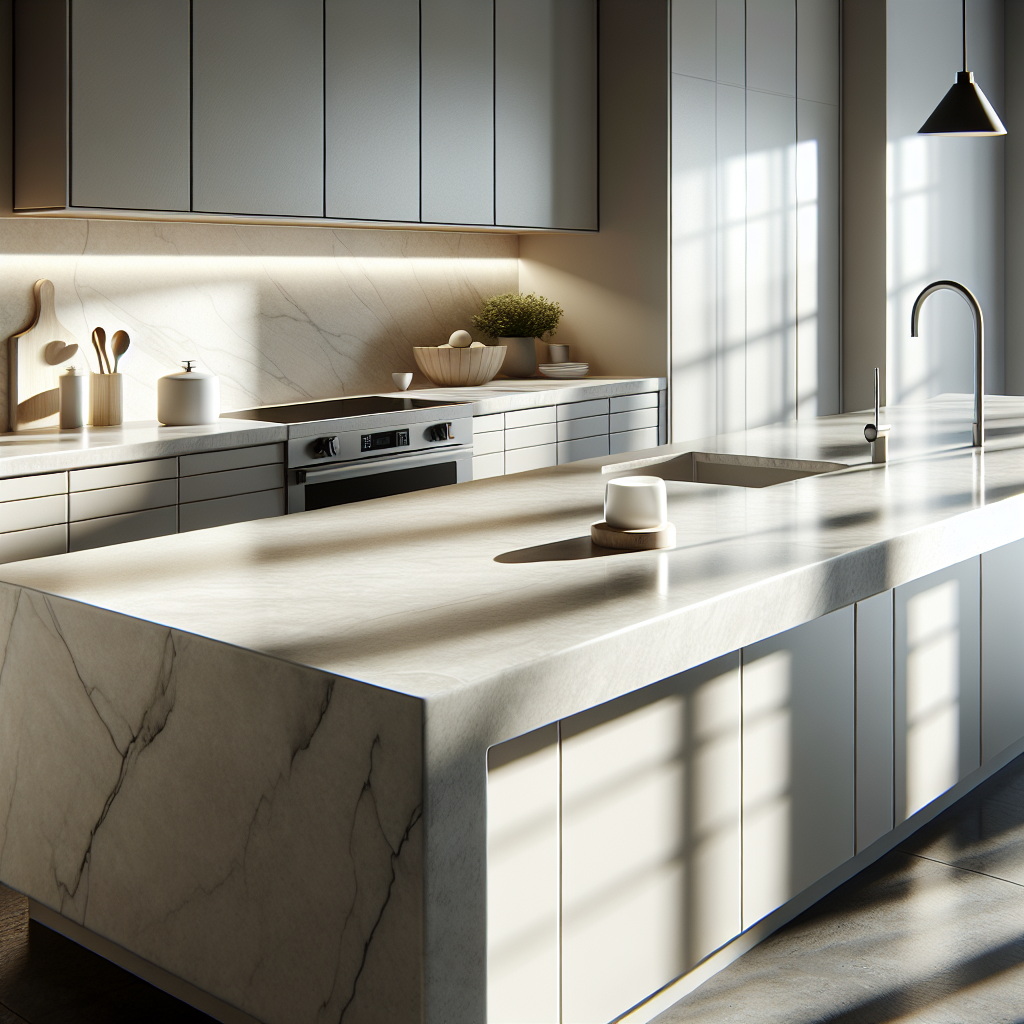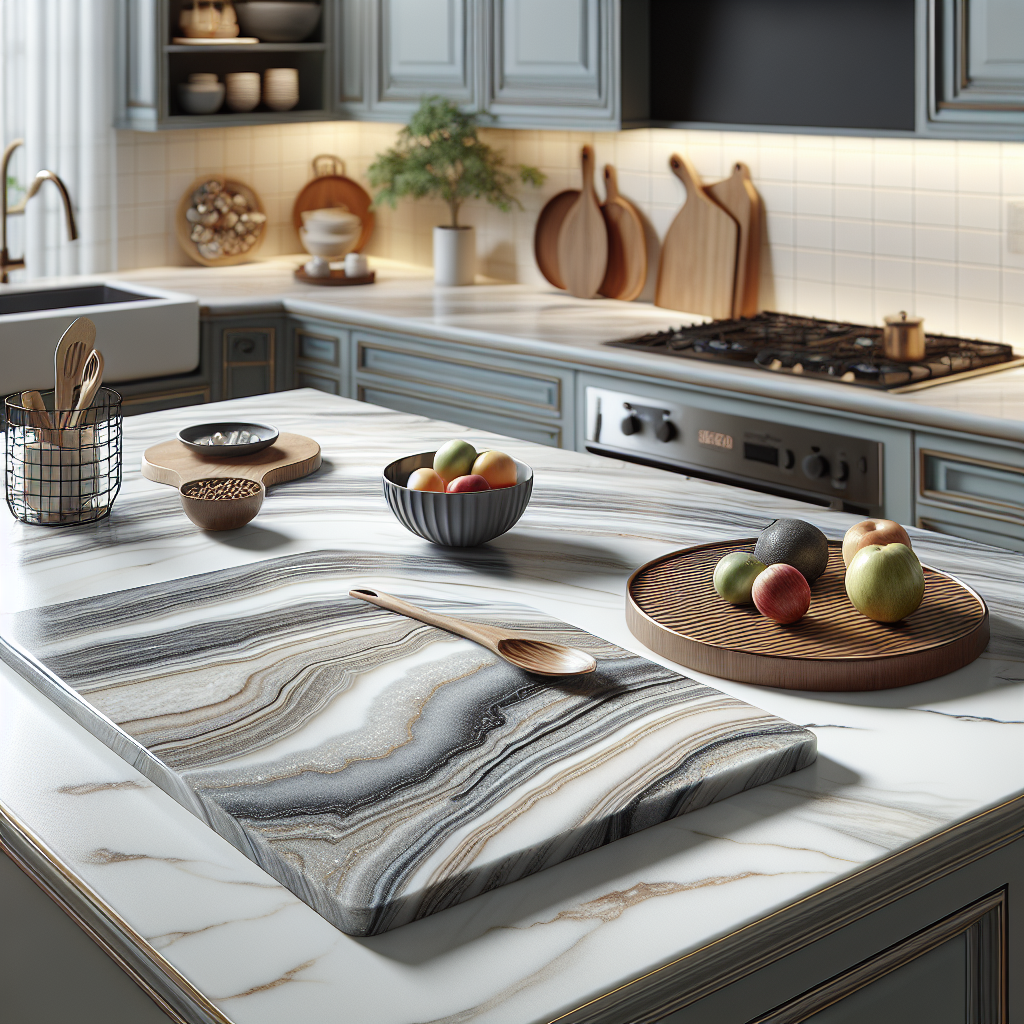Porcelain countertops have emerged as a popular choice in modern kitchen design, thanks to their remarkable blend of aesthetic appeal and functional advantages. With a sleek and elegant appearance, these countertops are crafted from dense, durable ceramic material that offers exceptional resistance to scratches, stains, and high temperatures. This makes porcelain an ideal choice for busy kitchens where durability is as important as style.
One of the standout features of porcelain countertops is their *man-made* nature. Unlike natural stone options like granite or marble, porcelain is engineered to provide a consistent look and feel, allowing homeowners to achieve the exact aesthetic they desire. This consistency, combined with the variety of colors and finishes available, means that porcelain can complement any kitchen decor, from classic to contemporary.
As homeowners and contractors continue to seek materials that balance beauty with resilience, porcelain countertops have gained traction as a top contender. Their non-porous surface is not only easy to clean but also highly resistant to bacteria, making them a hygienic choice for food preparation areas. Additionally, their lightweight nature compared to stone makes them easier to install, potentially reducing labor costs.
For those considering a kitchen upgrade, understanding the benefits and unique qualities of porcelain countertops is essential. **Call us today at (954) 781-7370 for a free quote!** Visit our website at Absolute Marble and Granite to explore our range of exquisite porcelain countertops and find the perfect match for your home.
Understanding Man Made Materials

In the world of countertop materials, the term “*man-made*” signifies products that are engineered or fabricated by humans using various technologies and processes. These materials are created to emulate the beauty of natural stone while offering enhanced performance characteristics. Among the most popular man-made materials for countertops are quartz, solid surface, and, of course, porcelain.
Man-made materials are designed to address some of the limitations found in natural stone. For instance, while granite and marble are undoubtedly beautiful, they can be porous and require regular sealing to prevent stains. Man-made surfaces like porcelain feature a non-porous composition, making them inherently resistant to staining and bacterial growth. This property is particularly advantageous in high-traffic kitchen areas where spills and splashes are common.
Moreover, the manufacturing process of man-made materials allows for greater control over color and texture. This consistency ensures that each slab of porcelain, for example, has a uniform appearance, eliminating the natural variations that occur in stone. This can be beneficial for homeowners seeking a specific color scheme or pattern in their kitchen design.
Another significant advantage of man-made materials is their environmental sustainability. Many of these materials are produced using recycled content and eco-friendly processes. Porcelain, in particular, is often made from natural clays and minerals, making it a more environmentally conscious choice compared to some other synthetic options.
Understanding the benefits and characteristics of man-made materials is crucial for anyone embarking on a kitchen renovation. These engineered surfaces not only provide practical solutions to everyday challenges but also offer a range of aesthetic possibilities to enhance your living space.
How Porcelain Countertops Are Made

Porcelain countertops are renowned for their *durability*, elegance, and versatility, and understanding the manufacturing process behind these stunning surfaces can provide valuable insight into their unique qualities. The journey of creating porcelain countertops begins with the selection of raw materials, primarily composed of fine clay, kaolin, feldspar, and quartz. These materials are meticulously chosen for their superior quality and ability to withstand high temperatures.
The next step in the creation process involves mixing these raw ingredients into a fine powder, which is then shaped into slabs using advanced pressing techniques. This process ensures the slabs are compact and free of air pockets, resulting in a dense and robust product. Once the slabs are shaped, they undergo a critical phase of drying, which prepares them for the intense heat of the kiln.
Firing is a pivotal stage in the production of porcelain countertops. The slabs are exposed to temperatures exceeding 1,200 degrees Celsius in a kiln, a process that transforms the raw materials into a solid, non-porous surface. This high-temperature firing not only imparts strength and resilience to the porcelain but also enhances its resistance to stains, scratches, and heat, making it an ideal choice for kitchens.
After firing, the slabs are often polished or matte-finished to achieve the desired aesthetic appeal. This finishing process can also include applying decorative patterns or colors, giving porcelain countertops their distinctive look. The result is a surface that is not only beautiful but also practical, capable of complementing a wide variety of kitchen styles and designs.
In summary, the meticulous process of manufacturing porcelain countertops combines traditional craftsmanship with modern technology, resulting in a product that is both aesthetically pleasing and functionally superior. By understanding how porcelain countertops are made, homeowners can appreciate the intricate work and innovation that goes into bringing these exceptional surfaces to life.
Benefits of Porcelain Countertops

Porcelain countertops offer a multitude of **benefits** that make them a popular choice for homeowners and designers alike. One of the most significant advantages is their *remarkable durability*. Porcelain is known for its resistance to scratches, chips, and cracks, making it an ideal surface for busy kitchens where everyday wear and tear is inevitable. This durability ensures that your countertop will maintain its pristine appearance for many years.
Another key benefit of porcelain countertops is their *exceptional heat resistance*. Unlike other materials, porcelain can withstand high temperatures, allowing you to place hot pots and pans directly on the surface without causing damage. This feature is particularly beneficial for avid cooks who often work with high heat and need a reliable workspace.
Porcelain countertops are also highly *stain-resistant* due to their non-porous nature. This quality makes them an excellent choice for kitchens where spills are common. Liquids such as wine, coffee, and juice won’t seep into the surface, reducing the risk of permanent staining and making cleaning a breeze. Simply wipe the surface with a damp cloth, and it will look as good as new.
In addition to their practical benefits, porcelain countertops are available in a wide variety of colors, patterns, and textures, offering great *design flexibility*. Whether you prefer a sleek, modern look or a more traditional aesthetic, there’s a porcelain option to suit your taste. These countertops can mimic the appearance of natural stone, wood, or concrete, allowing you to achieve your desired style effortlessly.
Lastly, porcelain is an *eco-friendly* option for your kitchen. Many porcelain countertops are made from recycled materials, and their long lifespan means less frequent replacements, reducing waste. Choosing porcelain is a sustainable choice that combines beauty, functionality, and environmental responsibility.
Comparing Porcelain with Natural Stone
When comparing **porcelain countertops** to natural stone options like granite and marble, several distinct differences and advantages come to light. One of the primary contrasts lies in their *composition and manufacturing processes*. Porcelain is a man-made product, crafted from refined clay and minerals, which are subjected to high-temperature firing to achieve a dense and durable surface. In contrast, natural stones are quarried directly from the earth, each slab showcasing unique patterns and veining formed over millions of years.
In terms of *durability*, porcelain countertops are often favored for their superior resistance to heat, scratches, and stains. Natural stones, while robust, can be more susceptible to etching and staining, particularly in the case of marble. This makes porcelain an excellent choice for those seeking a low-maintenance option that can withstand the rigors of daily kitchen use.
On the other hand, natural stone countertops offer unparalleled *aesthetic appeal* due to their unique and varied patterns. Each slab of granite or marble is one-of-a-kind, providing a level of exclusivity and natural beauty that is hard to replicate. While porcelain can mimic these appearances, some homeowners prefer the authenticity and tactile feel of natural stone.
When it comes to *cost*, porcelain countertops generally present a more budget-friendly alternative. The price of natural stone can vary significantly based on rarity and sourcing, potentially making them a more costly investment. However, for those who prioritize aesthetics and are willing to invest, the luxurious appeal of natural stone might justify the expense.
Ultimately, the choice between porcelain and natural stone countertops depends on personal preferences and priorities. Whether you value the *low maintenance* and uniformity of porcelain or the *unique elegance* and natural charm of stone, both materials offer distinct benefits that cater to different styles and functional needs.
Installation and Maintenance Tips

**Installing porcelain countertops** requires precision and expertise to ensure a flawless finish that enhances your kitchen’s aesthetic appeal. It’s crucial to engage experienced professionals who can accurately measure and cut the porcelain slabs to fit your space perfectly. The installation process involves securely adhering the slabs to the cabinetry and ensuring all seams are seamless, often requiring specialized tools and adhesives designed for porcelain. Proper support is also essential to prevent any stress on the countertop that could lead to cracks.
Once installed, maintaining porcelain countertops is relatively straightforward due to their non-porous nature. This characteristic makes them naturally resistant to stains and easy to clean. For daily upkeep, a simple wipe down with a damp cloth and a mild detergent is sufficient to keep your countertops looking pristine. It’s advisable to avoid harsh chemicals or abrasive pads that could potentially damage the surface.
Though porcelain is remarkably durable, it’s wise to take some precautions to prolong its longevity. Using cutting boards can prevent potential knife scratches, and trivets or heat pads are recommended to protect the surface from hot pots and pans, even though porcelain can withstand high temperatures.
By following these installation and maintenance tips, you can ensure that your porcelain countertops remain a stunning focal point in your kitchen for years to come. If you’re considering a new countertop installation, **call us today at (954) 781-7370 for a free quote!** Visit our website at Absolute Marble and Granite to explore our range of luxurious countertop solutions.
